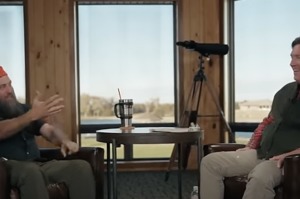Breakaway Anglicans Confident of Property Ownership
Despite an agreed standstill over church property between the Episcopal Church and Virginia parishes that left the American church body, the breakaway congregations say they have a strong case for the ownership of their properties.
Six of the eight congregations that voted Sunday to join the Convocation of Anglicans in North America (CANA) – the splinter group led by The Falls Church in Falls Church and Truro Church in Fairfax – announced Tuesday that they have officially reported the voting results in the circuit courts of their respective counties.
The churches were "complying" with Virginia law, which states that if a division occurs in a church, congregants may determine by vote which branch to belong to and report it to the circuit court of the county. And if approved by the court, it "shall be conclusive as to the title to and control of any property held in trust for such congregation."
The Diocese of Virginia was informed of the congregations' actions well before the agreement – weeks prior to the weeklong vote, according to the announcement.
"We have kept the Diocese of Virginia fully informed of our actions and we continue to communicate with them," said Jim Oakes, senior warden of Truro Church, in a statement.
Filings made to the local circuit court were not "adversarial proceedings," the announcement clarified.
In an agreement made Monday, the congregations and the state diocese promised not to initiate any litigation or canonical action for at least 30 days. The parishes also agreed not to attempt the transfer of church property in that time period, according to a news release by the diocese.
The congregations, however, expressed some reservations about the "Property Commission" that the Executive Board, Standing Committee and Bishop Peter Lee of the diocese established to address property matters on behalf of the diocese.
"We look forward to negotiating the property issues," said Oakes. "It is important for us, however, to be able to negotiate with someone who has the authority to reach a final settlement on behalf of the Diocese and the national denomination. It is not clear to us whether this Commission would have the authority to do that."
Despite the "surprising" commission set up to settle property disputes, the Virginia parishes expressed confidence in the case for ownership.
The church buildings at issue – including The Falls Church, one of the largest congregations that split from the Episcopal Church – were built with gifts from members and not grants from the denomination, according to the church announcement. And the deeds to the properties are said to be in the name of trustees for the congregations rather than for the diocese or the national body.
In the case for Falls Church, the building was completed well before the Episcopal Church formed in the United States.
Meanwhile, there are still members from some of the churches that split who opposed the recent vote. Some 30 members at St. Stephen's Episcopal Church in Heathsville say they want to continue to operate as an Episcopal Church.
The Diocese of Virginia had announced their support for those remaining with the denomination, especially as some of the churches now have significantly reduced membership.
Regarding resolutions on the possession of the St. Stephen property, one member, Margaret Cox, said they only hold the property in trust for the denomination. The new CANA congregations argue that Virginia law does not recognize denominational trust interests in congregations' property.
St. Stephen's Church is one of the six congregations filing a report with their local circuit court.



























